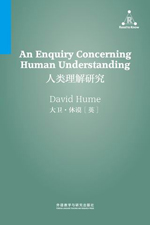书评
Hume's comprehensive analysis of human cognitive activity points out that human cognitive capacity is limited. His analysis of philosophies including religion atheism and absolute skepticism leads to his philosophy of "moderate skepticism." As a moderate skeptic Hume believed that a reasonable reasoner should retain a permanent degree of skepticism caution and humility in all his examinations and assertions. A moderate skepticism or collegiate philosophy can be both enduring and useful. Nor is the conclusion of philosophy anything other than a systematic and revised reflection on everyday life and Hume points out that there are two aspects of the inherent subject of science and research that one can come to: a quantitative science and the existence of actual and factual facts that are d entirely on experience. Hume further pointed out that the best and firmest foundation for theology is faith and divine revelation; ethics and criticism are s of interest and amusement not of understanding.
The rest of the books contain nothing but sophistry and fancy except those which contain reasoning about number and quantity and those which contain inferences about real facts and the existence of any experience and then one may cast them into the fire.Hume says that the dividing line between mediocrity and genius lies primarily in the superficiality or profundity of the principles on which they their research. The complexity of general inferences lies in their generality. It is not easy for most people to distinguish or to purify what most people agree is the general situation from other minor situations in the midst of a multitude of specific problems. In their view every judgment and conclusion is specific and they can neither expand their vision to those all-encompassing propositions nor can they use a certain principle to summarize the entire knowledge.




 京公网安备 11010802032529号
京公网安备 11010802032529号